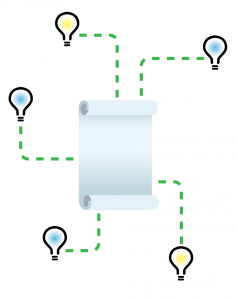Hell hath no fury like an anonymous Internet commenter.
It seems that every article and video on the Internet, no matter how benign or innocent, eventually ends up in some bizarre mix of strange arguments and offensive language. You don’t have to go any farther than UCLA to see the vitriol; even this week we’ve seen our own student government candidates attacked from every conceivable cyber-direction.

Yet in a move that runs contrary to conventional wisdom regarding civil debate on the Internet, Assemblyman Mike Gatto (D-Los Angeles) decided to double down and submit to the legislature a bill that was entirely written by strangers on Wikispaces.
And what should’ve been an affirmation of our parents’ advice to never talk to strangers turned into something else entirely.
It passed by a vote of 72-0.
The success of this legislative crowdsourcing, in which anyone with an Internet connection can add to the bill, marks a potentially startling shift in the way laws are written and how average citizens are involved in the democratic process. In fact, the ramifications are so powerful that student lobbying groups of every kind should be encouraging the expansion of this platform to every local politician they can reach.
Consider what position the external vice president and student lobbying groups have in the first place. They’re students with a small staff and office that are supposed to advocate for the constituents of their campus or university system on both a state and nationwide scale. Yet they’re supposed to accomplish this with programs and campaigns that, at best, draw a hundred students who are already politically active and agree with their stance.
Even Maryssa Hall, the Undergraduate Students Association Council’s external vice president, by all accounts a very capable and passionate organizer, failed to move the needle a whole lot despite her best efforts. Even in best-case scenarios, a single external vice president just doesn’t have the resources at his or her disposal to make wide-reaching institutional change.
Which is unfortunate, because many times those representatives and groups are the closest things students have to a professional lobbyist. However, on a blank wiki page, the only unequal force between Internet strangers is how quickly they can type.
Now, some of the drawbacks are obvious. If there are people willing to comment on something as trivial as a YouTube video, there are definitely even more extreme people willing and eager to play politician.
When I brought this up with Gatto, he agreed that it’s a concern. He defended the premise, though, by pointing out that for every ideologue who comes along, there are moderates who will balance them out.
As an example of this self-moderation, Gatto used the Internet’s most famous (and every procrastinating college student’s favorite) encyclopedia: Wikipedia.
Still, there are issues. There’s more at stake in drafting legislation than there is in correcting Wikipedia, and lobbyists aren’t paid big bucks to sit around and let their influence be relegated by a computer. Gatto contended that regardless of the website, people are just as invested in ensuring their side of the story is told.
I disagree. A slight error in a Wikipedia article doesn’t influence national or state policy, whereas an overlooked sentence in a bill can have massive ramifications.
However, the warts of this system don’t outweigh the potential benefits of having completely transparent bill writing, especially when it comes to underrepresented demographics. Making legislation available to anyone with an Internet connection also increases the number of voices represented exponentially.
In Los Angeles County alone, there are 18 state congressional districts.
Student groups may finally be able to leverage their unique expertise on campus life and channel it into the creation of real-life bills. This can be done by focusing their lobbying efforts and adopting open access platforms.
Conversations and the occasional trip to Sacramento are nice, but this is an opportunity for tangible change.
There remains one significant obstacle. Why would legislators want to do this? In Gatto’s mind, it all comes to down incentives. Gatto said he’s already had other lawmakers approach him about the press he’s received following his experiment.
Which makes the pitch obvious: Support this policy, and you’ll be a champion of the people and transparency. It almost writes itself.
Gatto’s bill this year involved the succession of ownership for a deceased person’s pet, but he said he hopes to try this approach next year on a more broad-reaching topic. If these student groups and leaders want some actual change, it would benefit them to make sure they have a lot of bandwidth.
Send general comments to opinion@media.ucla.edu or tweet us @DBOpinion.
